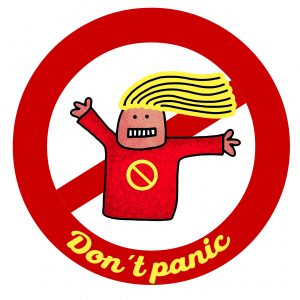Last Updated on June 13, 2025 by Michelle Ball
By Michelle Ball, California Education Attorney for Students since 1995
Sometimes, school discipline means a detention. Other times it may mean student expulsion moves forward. Which offenses are discretionary expulsion offenses (meaning the school did not have to recommend expulsion at all)?

Expulsion May Not Always Be Mandatory
When a student does something that breaks school rules, their school vice principal, principal and the school district hold the cards on whether an expulsion may need to go forward or not. In certain school discipline situations, students are expelled when maybe they did not have to be, as the law does not MANDATE expulsion. In that case, other school discipline could have been imposed.
What Are Discretionary Expulsion Offenses?
Discretionary expulsion offenses are wrongs for which the student does not legally have to be recommended for expulsion. In other words, the legislature did not say the school HAD to put the student up for such harsh school discipline.

What Offenses Are Discretionary?
Rather than suspending or expelling a student who commits one of the below offenses, a school can implement alternative school punishments which may actually serve the student and school better.
Expulsion is not mandatory for the below situations:
1) Caused attempted or threatened to cause physical injury.
2) Willful force or violence on another except in self-defense.
3) First offense of possession of less than one ounce of marijuana or medications prescribed to the student
4) Under the influence of a controlled substance (unless they count this as possession which carries a mandatory recommendation).
5) Possessed, used, or sold alcohol.
6) Offering, arranging or negotiating to sell a controlled substance, alcohol, or intoxicant and delivering a substitute material, representing it as the item (fake drug/alcohol).
7) Damage/attempt to damage property
8) Stealing
9) Tobacco/nicotine product possession
10) Obscene act (so long as not sexual assault/battery) or habitual profanity/vulgarity.
11) Possession, negotiation or sales of drug paraphernalia
12) Knowing receipt of stolen property.
13) Possession of imitation firearm.
14) Harassment, threats or intimidation against student witness to prevent testimony or retaliate
15) Attempt to engage in or engaging in hazing
16) Bullying or sexual cyber bullying, including by an electronic act directed specifically toward a pupil or school personnel.
17) Sexual harassment
18) Caused or attempted to cause hate violence (grades 4-12)
19) Intentional harassment, threats or intimidation (grades 4-12)
20) Terroristic threats (e.g. threats to commit a crime)
These offenses are reflected in California Education Codes 48900-48917.

Discretionary Does Not Mean Student Cannot Be Expelled
With these offenses, it is completely up to the school or district’s DISCRETION whether to proceed with suspension OR expulsion or… nothing.
However, just because these school offenses don’t carry mandated expulsion recommendations in the Education Code does not mean school districts do not put students up for expulsion for any or all of the above. They do, and they often put them up under more than one category.
Student lawyer Michelle Ball is located in Sacramento California. As an education attorney she can represent students across the state, from Tahoe to San Diego, West Sacramento, Santa Barbara, or the Bay Area and can jump in throughout California.
[originally published March 4, 2011]




